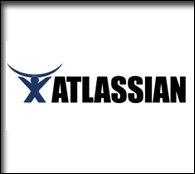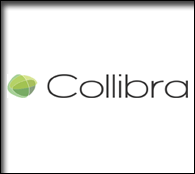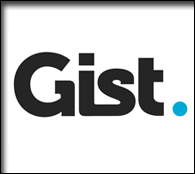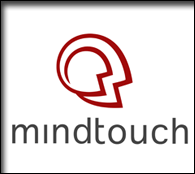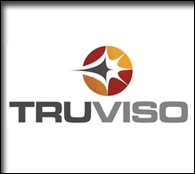Andy, Howard and Jason on a Sunday morning
by Eric Norlin on Sep.28, 2008, under general, industry stuff
To say this past week has been “tumultuous” would be an understatement. Late Friday afternoon, I found myself having conversations with local bankers about the worst case scenarios, while bartenders stood there saying, “man, maybe I won’t deposit my check - maybe I’ll stick that in my pocket.” Well, we awake this morning to what is apparently a new world, as it seems that the “bailout compromise” is going to get done.
Simultaneously, I’m finding Jason Calacanis’ email send (entitled, “(The) Startup Depression“) in my inbox, and finding Howard’s great blog post that references Andy’s amazing article from last week. Without getting into the whole mess of agreeing or dis-agreeing with the bailout (I’ve done both in the last week - hasn’t everyone?), let me just say that A) I do side with Andy in thinking this might be one of the greatest “trades” the U.S. could ever make, and B) I couldn’t agree more with Howard — it just isn’t profitable to “bet against the U.S.”
All of it has me looking out over a cloudy Gulf, remembering the 2001-2003 timeframe, and thinking about how momentous this event really is. So, you guessed, I’m resorting to the bullet list:
1. Anyone that underestimates how important this bailout will be is a fool. Howard mentions “new trends” - and I agree. This thing will REMAKE the financial landscape as we know it. It’s akin to “the new deal” in terms of societal impact, and is easily as important as Smoot-Hawley or Glass-Steagall.
Jason’s email send has lots of pretty typical “tactical advice for entrepreneurs” in it, but the one thing that really bothered me was his prognostication that “things are gonna get really bad.” It is simply IMPOSSIBLE to know that right now. This bailout could very easily put a floor under mortgages, save the banks, open the credit markets back up, strengthen the dollar (very weirdly - see andy), help the deficit AND make the U.S. “gubmint” a whole bucketload of money to play with. In short, I’m nowhere NEAR willing to think that we should all be “hunkering down” for 2-3 years of startup nuclear winter. It very well could be that after things sort out (and we may get a rate cut in here still, don’t kid yourselves), this market — and the accompanying economy absolutely lights on fire. Could be. Maybe. No one knows.
Am I planning for “happy times?” Of course not. I’m planning as I always do — to be a long distance runner not a sprinter. Survival is key, but mapping out survival for most people should only take about 5 minutes. After that, you have to consider both A) disaster and B) complete upside surprises - the key here is to give at least equal weighting to both, while knowing that in all likelihood, the upside to disaster ratio is probably preternaturally disposed to at least 60/40 (the universe worked that out long ago).
2. Will lots of startups fail? Yep, undoubtedly. But lots of startups will stay alive too. And they’ll slowly spend money. And they’ll come to conferences. And they’ll get focused and tough and lean. Startups always fail - that’s the name of the game, but startups also always find a way to stay alive. Bottom line: people can talk all day about the benefits of being in silicon valley, but one of the huge downfalls of it is that when times are good, EVERYBODY gets funding. This whole market phenomenon will scare and hurt the “valley” startup scene way more than it will Boulder, Pittsburgh, Austin, the Twin Cities, Atlanta, Research Triangle, or good ole Florida.
3. What should you do? Everyone I know that’s been around the block agrees on this one - START A BUSINESS. What am I doing? Launching a new conference (more on that later). Why? Because I remember January 2002. I remember meeting Andre Durand for lunch in downtown Denver and watching his eyes light up talking about “digital identity.” At the time, I was making ends meet in the web design/copy writing business, and it was just refreshing to see anyone excited about technology — after all, at that point, the entire software industry only had like 25 people still working (HA!). In any case, I didn’t get Andre’s idea. It sounded so…..boring. Three days later, I woke up in a cold sweat with my head filled with ideas about digital identity. I couldn’t read about anything in tech land without seeing how identity was the solution. I had become completely myopic.
I called Andre back and told him that I wanted to be involved “no matter what” - it wasn’t about money, and it wasn’t about startup greatness; the world NEEDED this dammit - and we were just the guys to bring it to life (or so we thought). Within days, I’d met Phil Becker (who has since become my absolute #1 business mentor - and a true, close friend) and the whole thing was off and running. Ping Identity (software company) came to life, and Digital ID World (tech conference) came to life.
People thought we were absolutely nuts, by the way, for starting a tech conference. Comdex had just announced bankruptcy. There were barely any tech conferences around, much less new ones launching. And “digital identity” was kind of a joke (remember Microsoft’s Passport? yea). Well, we muscled through - and made just enough money the first year to allow us to do it all again (which is to say none of us made a dime on the conference in year 1). Needless to say, it all worked. Digital ID World grew (and was sold in 2005). Ping got funding (when it was impossible to get funding). It all came together. There were times when Andre would call and tell me that Ping would be outta money in two weeks if he didn’t raise cash, but it did all come together. Bottom line: start a business.
At the end of the day, every thing’s changed, but every thing is also still the same. The markets will sort this out. Good companies will make it. Defrag will be here in 2009 (so you have that to look forward to). The sun will still rise. And, if I was a betting man (oh wait - I am), I’d bet on U.S. innovation to win out in the end - again.
Smile. Think abundance, not scarcity. Get optimistic. To quote U2, “it’s a beautiful day.” ![]()
P.S. Don’t think there isn’t a certain irony/indicator in the fact that the conference that really kicked off this whole last cycle (Web 2.0) has people like Lance Armstrong and Al Gore speaking. That just wouldn’t have happened in 2002. Ever. And here we are again. It’s really not a matter of “never learning” - it’s human nature, market cycles and rhythm. Just keep focused on dancing, and give up on “dancing with the stars.”
